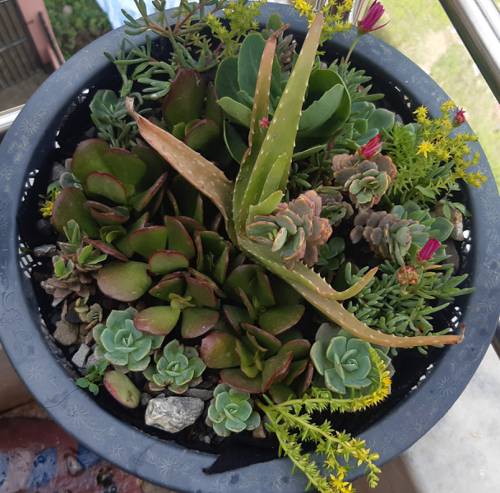
FAQ About Indoor Plants for Stress Relief and Relaxation

What indoor plants are known for their stress-relief benefits?
Some popular indoor plants known for their stress-relief benefits include lavender, jasmine, rosemary, aloe vera, and peace lilies. These plants are believed to help reduce anxiety and promote relaxation.

How do indoor plants help in reducing stress?
Indoor plants can reduce stress by purifying the air, improving humidity, and offering a natural form of decor that enhances mood. Their presence can also lead to a sense of connection with nature, which is calming for many individuals.

What care is required for a jade plant?
Jade plants require bright, indirect sunlight for the majority of the day. They prefer well-draining soil and should be watered only when the soil feels dry to the touch, as they are sensitive to over-watering.

Where should I place a lavender plant indoors?
Lavender plants should be placed in a sunny spot indoors, such as a south-facing window. They thrive in bright light and need it to grow properly and emit their fragrant aroma.

Can aloe vera really reduce stress levels?
While aloe vera is primarily known for its soothing properties on the skin, its presence as an indoor plant can help reduce stress by improving indoor air quality and adding greenery to living spaces.

Do indoor plants purify the air effectively?
Yes, certain indoor plants are effective at purifying the air. Plants like peace lilies, spider plants, and snake plants can filter out common toxins and improve the air quality in your home.

How does jasmine contribute to relaxation?
Jasmine is known for its fragrant flowers, which can significantly contribute to a sense of calm and relaxation. The aroma of jasmine is believed to have a sedative effect that can help ease anxiety and promote restful sleep.

What is the best way to care for a peace lily as an indoor plant?
Peace lilies should be placed in bright, indirect sunlight and watered when the top inch of soil feels dry. They appreciate high humidity, so misting the leaves occasionally can be beneficial.

Are there any indoor plants that are particularly good for bedrooms?
Plants like lavender, snake plant, and areca palms are excellent choices for bedrooms. They not only add to the aesthetic but also improve air quality and promote better sleep due to their calming effects.

Why is rosemary considered good for stress relief?
Rosemary's essential oils are known for their calming properties. Keeping a rosemary plant indoors can help reduce stress and improve mental clarity due to its invigorating scent.

Is it true that plants can improve concentration and productivity?
Yes, studies have shown that having plants in the workspace can improve concentration and productivity by up to 15%. This benefit is attributed to both improved air quality and the mood-enhancing effects of greenery.

How often should I water my indoor snake plant?
Snake plants require minimal watering, typically once every few weeks. They should only be watered when the soil feels dry, as they are prone to root rot if over-watered.

Can indoor plants increase the humidity in a room?
Yes, indoor plants can increase humidity levels. Plants release moisture into the air through a process called transpiration, which can help maintain a comfortable humidity level in your home.

What are some easy-care indoor plants for beginners?
Some easy-care indoor plants for beginners include the spider plant, pothos, snake plant, and ZZ plant. These plants are tolerant of various light conditions and are quite forgiving if watering schedules are occasionally missed.

How can I create a serene environment with indoor plants?
To create a serene environment, place a variety of plants with different textures and colors around your home. Consider arranging them in areas where you spend the most time, such as living rooms or bedrooms, and pair them with calming decor elements.

Do plants have an impact on indoor noise levels?
Yes, plants can help reduce indoor noise levels. Their leaves and branches can absorb, diffract, or reflect noise, making them natural sound barriers that contribute to a quieter, more serene environment.

Which indoor plant is best for improving air quality the fastest?
The snake plant is known for being one of the best plants for improving air quality quickly. It can effectively filter out several toxins and requires minimal care, making it ideal for enhancing indoor air quality.

Are there any plants that can help with sleep?
Yes, plants such as lavender, jasmine, and valerian are known to help with sleep. These plants can promote relaxation and reduce anxiety, thus creating a more conducive environment for restful sleep.

How much sunlight does a spider plant require?
Spider plants prefer bright, indirect sunlight. They should be kept out of direct sunlight as it can scorch their leaves, but they thrive in well-lit environments without direct exposure.

Can keeping indoor plants improve mental health?
Yes, keeping indoor plants can have a positive impact on mental health. The act of caring for plants can be therapeutic, offering a routine that helps reduce anxiety. Additionally, the greenery and improved air quality can enhance mood and overall wellbeing.
